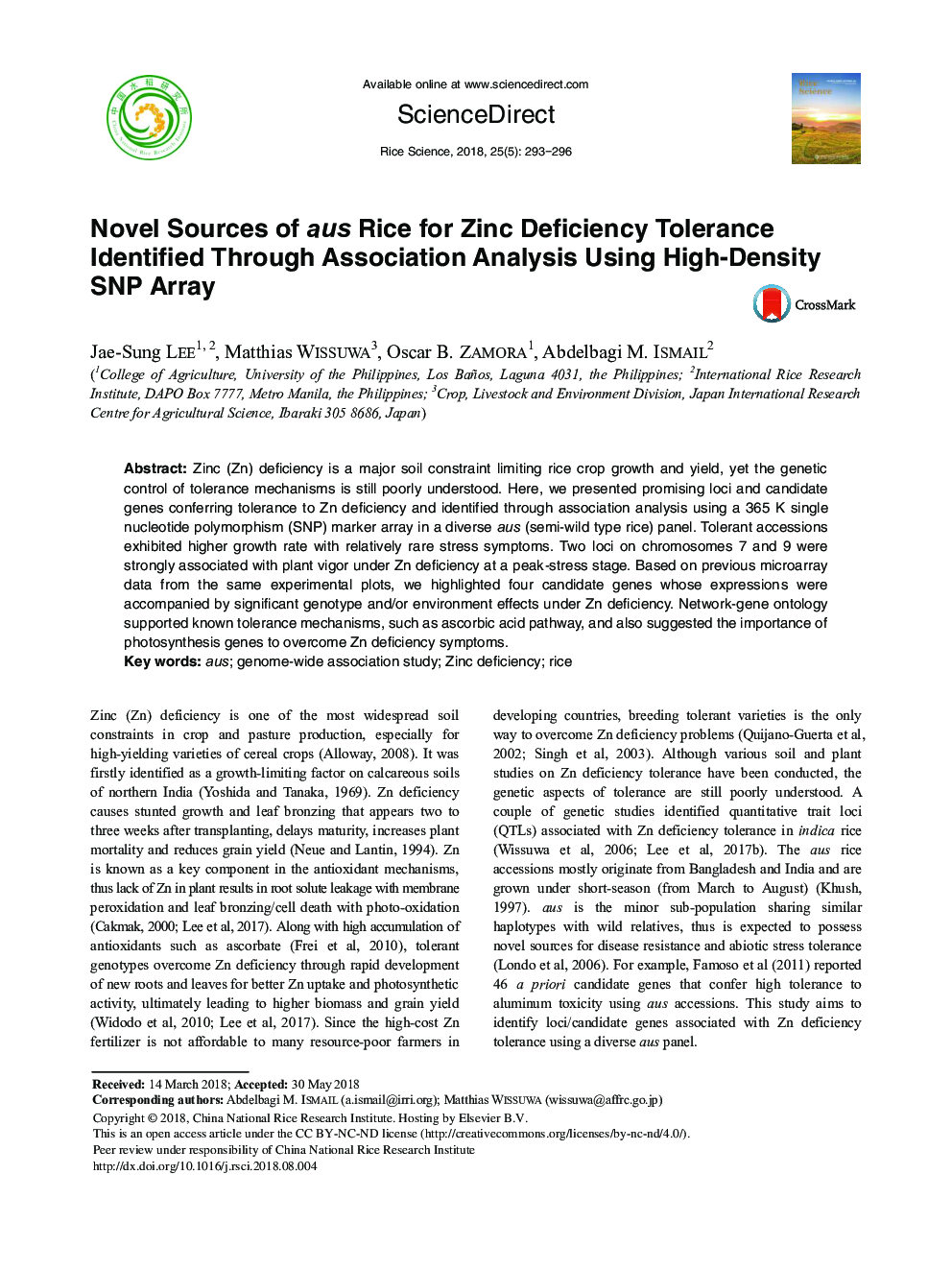| Article ID | Journal | Published Year | Pages | File Type |
|---|---|---|---|---|
| 8959374 | Rice Science | 2018 | 4 Pages |
Abstract
Zinc (Zn) deficiency is a major soil constraint limiting rice crop growth and yield, yet the genetic control of tolerance mechanisms is still poorly understood. Here, we presented promising loci and candidate genes conferring tolerance to Zn deficiency and identified through association analysis using a 365Â K single nucleotide polymorphism (SNP) marker array in a diverse aus (semi-wild type rice) panel. Tolerant accessions exhibited higher growth rate with relatively rare stress symptoms. Two loci on chromosomes 7 and 9 were strongly associated with plant vigor under Zn deficiency at a peak-stress stage. Based on previous microarray data from the same experimental plots, we highlighted four candidate genes whose expressions were accompanied by significant genotype and/or environment effects under Zn deficiency. Network-gene ontology supported known tolerance mechanisms, such as ascorbic acid pathway, and also suggested the importance of photosynthesis genes to overcome Zn deficiency symptoms.
Related Topics
Life Sciences
Agricultural and Biological Sciences
Agricultural and Biological Sciences (General)
Authors
Jae-Sung Lee, Matthias Wissuwa, Oscar B. Zamora, Abdelbagi M. Ismail,
